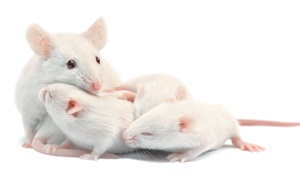
Scientists have for the first time produced live offspring from testicle tissue that has been cryopreserved, or deep frozen, and say a similar technique might one day be used to preserve the fertility of boys facing cancer treatment.
In a study published in the journal Nature Communications, Japanese researchers said their experiments using mice led to eight healthy offspring being born from sperm produced by previously frozen and thawed testicle tissue.
Fertility an important concern
"The cryopreservation of testicle tissue may be a realistic measure for preserving fertility," the team, led by Takehiko Ogawa of Japan's Yokohama City University Association of Medical Science, wrote in the study.
Infertility is one of the adverse side effects of certain types of cancer treatment, and, as cure rates for childhood cancers are increasing, fertility has become an important concern for patients and their families.
Read: Some infertile men show higher cancer risk
Freezing sperm itself to preserve it for future use is only possible for boys who have reached puberty, so scientists have been seeking ways of helping prepubescent boys have a chance of producing their own children even after cancer treatment.
Ogawa and colleagues said they had previously developed an organ culture system that can induce complete spermatogenesis – the process by which sperm is produced by the testes – in mice.
In this latest experiment, they cryopreserved the testicular tissues of newborn mice, either by slow-freezing or vitrification – a specialised fast-freezing technique.
Micro-insemination
After thawing, the tissues were cultured – or grown in a lab dish – and spermatogenesis induced. The scientists found the thawed tissue was able to produce sperm just as efficiently as comparable unfrozen sperm tissue.
The team then used micro-insemination – where sperm is deposited directly into immature egg cells – with tissues that had been cryopreserved for more than four months.
This lead to eight offspring in total, they said, and the offspring grew healthily and were also able to reproduce.
"This strategy presents a potential method for preservation of fertility but will require further work before it can be translated into humans," Ogawa's team wrote.
Read more:
Sperm substitution at fertility clinic
The Fertility Diet
Big breakfast good for fertility




 Publications
Publications
 Partners
Partners














